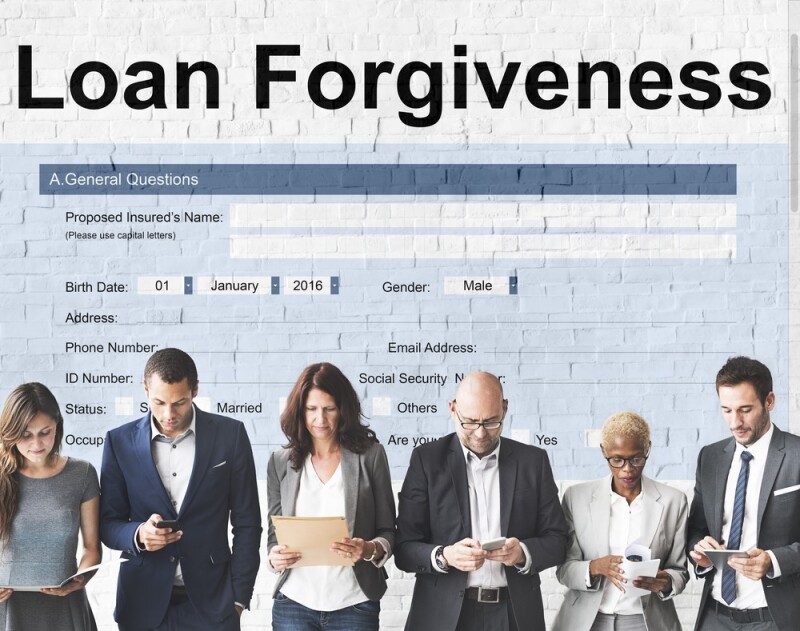These days, it's very difficult to finish a graduate education without incurring some form of student debt. The most common type of debt is student loans, with the average graduate student leaving school owing $57,600.1 When combined with other types of debt, such as credit cards, as well as with household bills, new graduates could find that their debt is unmanageable.
The good news for social workers, though, is that there are possibilities for student loan forgiveness that can significantly reduce or eliminate their debt. Depending on where you work, how long you work there and how much you pay toward your loans yourself, you may qualify for a student loan forgiveness program that will save you thousands of dollars.
The College Cost Reduction Act of 2007
A little more than a decade ago, this groundbreaking program provided new ways for student borrowers to repay their loans.2 While all borrowers can apply for a repayment plan that fits their income, some borrowers—including social workers—can also apply for loan forgiveness after 10 years of making payments.
To qualify for forgiveness under this act, you must work full time for at least 10 years in a public service job. This can include working for an agency that provides services for family, children, or the elderly; one which serves people with disabilities; or a qualified nonprofit organization. You have to make payments for 120 months while working in public service, but after doing so, 100 percent of your remaining balance will be cancelled.
There are some catches to this loan forgiveness program for social workers, though. First, you need to check with the Department of Education to determine whether your employment qualifies. Second, you only receive credit for full payments made while you are working in a qualified position.
So, for example, if you take a job working outside of public service for two years after graduation and pay your loans during that time, those payments do not count toward the 120 monthly payments required for forgiveness. Only when you start working in public service again do your payments continue to count. On the plus side, the amount of your loan debt that is eventually forgiven is not considered taxable income. So, once the loan is forgiven, you owe nothing else.3
Higher Education Reauthorization and Opportunity Act of 2008
A second federal program offers partial loan forgiveness for social workers. Under the Higher Education Reauthorization and Opportunity Act of 2008, social workers employed full time in an area of "national need"—such as child welfare workers or public-sector employees—may receive up to $2,000 of loan forgiveness per year of service, up to $10,000 in five years.4 If you qualify for this program, you need to apply for funds every year, and the exact amount you receive is determined by how much Congress appropriates for the program. However, you can apply for this program while you are still in school, and the only restriction is that you cannot be in default on the loan you're applying for help with.
National Health Service Corps Loan Repayment Program
Finally, if you are willing to work in a specific area, you could qualify to have up to $50,000 of your student loans repaid via the National Health Service Corps Loan Repayment Program.5 Under the terms of this program, fully trained and licensed clinical social workers who work in a community-based program in an area that was considered a high-need Health Professional Shortage Area for two years can received up to $50,000 in student loan repayments. The site must be a designated service site as deemed by the NHSC. You do need to repay your loans yourself while you are working, but you can apply to receive more repayment funds if you opt to stay at the NHSC site after your first two years.
These are just some of the programs that provide debt relief for social workers. You may have other options as well, such as tuition assistance from an employer, that can reduce the cost of earning your social work degree.
The bottom line is that you should not let finances be a determining factor in achieving your goals, as there are plenty of options available to help you earn your MSW degree and move forward in your career.
- Retrieved on February 21, 2018, from usnews.com/news/articles/2014/03/25/how-much-outstanding-loan-debt-is-from-grad-students-more-than-you-think
- Retrieved on February 21, 2018, from socialworkers.org/Advocacy/Policy-Issues/Student-Loan-Forgiveness
- Retrieved on February 21, 2018, from finaid.org/loans/forgivenesstaxability.phtml
- Retrieved on February 21, 2018, from studentaid.ed.gov/sa/repay-loans/forgiveness-cancellation/public-service
- Retrieved on February 21, 2018, from nhsc.hrsa.gov/loanrepayment/index.htm

